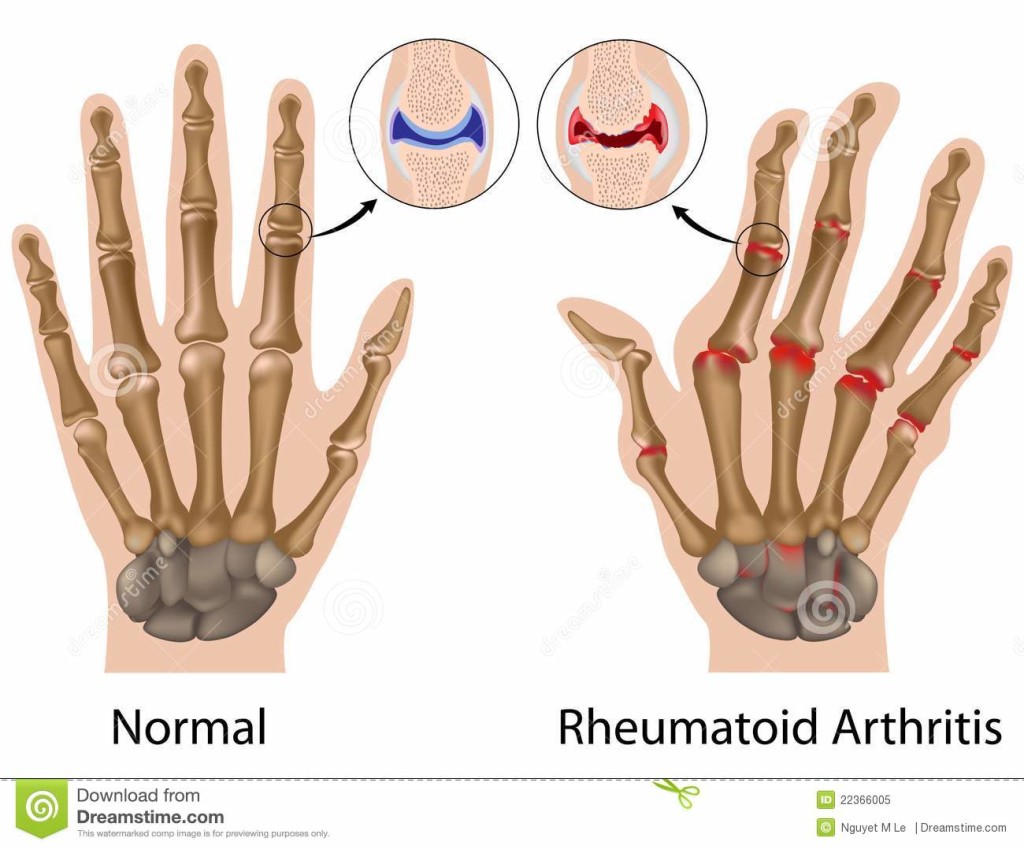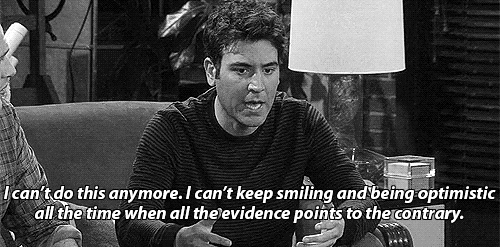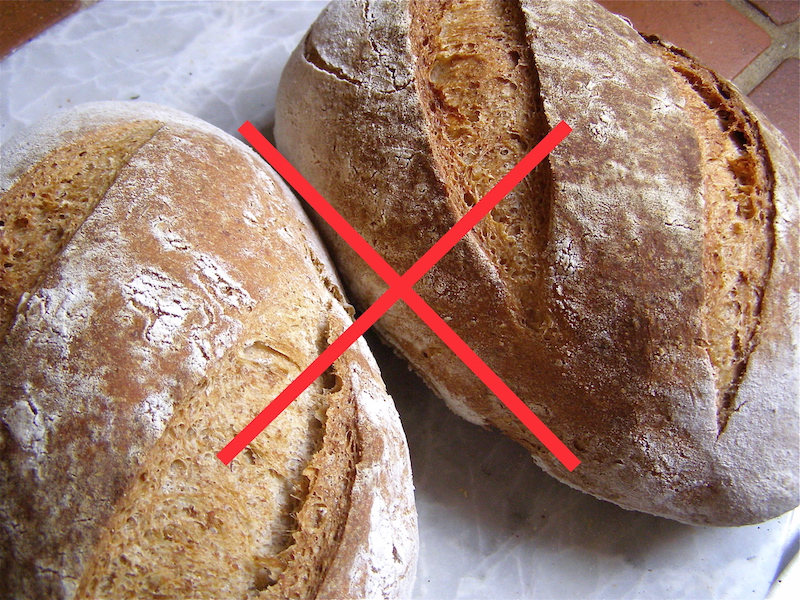What do you think of when you hear arthritis?
I think of someone in their 60s, graying hair — in a nutshell, an older person. I sure didn’t think of a young, seemingly healthy teenage girl.
But now I do. Hi, everyone. I’m Dylan, and when I was 17, I was diagnosed with rheumatoid arthritis.
Shocked? Incredulous? Confused? Those words can’t even begin to describe what I was feeling. I was happy to finally have a name for my condition, but being diagnosed was a double-edged sword; I was no longer an unnamed cause (which was great), but this also solidified the fact that I was different. That there was something wrong with me. Ashamed, I kept this secret to make sure no one knew. Till now.
What is Rheumatoid Arthritis?

Photo courtesy of thumbs.dreamstime.com.
Rheumatoid arthritis (RA) is an autoimmune disease that involves joint inflammation. It is caused by a faulty immune response which leads to pain, swelling, stiffness and redness in the affected parts of the body.
While arthritis as a whole affects 46 million people, RA affects approximately 1.29 million people (1 percent of the world) and is prevalent in women twice as much as men, most commonly found in adults in their 60s. The cause is unknown but is speculated to be genetically linked, potentially triggered by environmental factors such as stress (College apps and AP’s, anyone?).
For me, the symptoms started small, with the joints in my hand swelling one at a time, beginning in January 2014. My fingers began to look like crooked tree branches, transforming my long, straight fingers into swelled, disfigured digits that I hid at all costs. Shortly after, it became harder to do simple, everyday tasks such as zipping up boots, opening up bottles and taking notes in class.
Medication

Photo by Jocelyn Hsu
I went to the doctor after four months and took endless blood tests to find out that my rheumatoid factor was positive. I was prescribed handfuls of pills with names I couldn’t pronounce. They helped relieve some pain and swelling, but I soon noticed that there were more side effects than there were benefits.
Weight gain, dizziness and fatigue were just a few of the many that began to take a heavy toll on me. My eyes slowly lost their ability to focus, so I got glasses, and the longer I took my large doses of medication, the risk of acquiring long-term effects, like lymphoma and neonatal concerns (infertility), grew each day.

Photo by Mujahid Zaman
After assessing the facts, I came to these conclusions:
1. I have rheumatoid arthritis. Arthritis at such a young age? Not normal.
2. RA is mostly found in people over the age of 40. I’m only 17. Still not normal.
3. I’m taking medication that’s helping me in one area, but hurting me in 5 other ones. Is this worth it? I’m starting to think “No.” Oh, and I may not have kids.
4. It hurts to do anything with my hands. I’m done.
How I Felt

Gif Courtesy of thebarefootbeat.com.
Once diagnosed, I became pessimistic and extremely bitter. It felt like my world was shrinking and my opportunities were (literally) slipping through my fingers.
I felt so alone and ashamed, like I couldn’t even tell my closest friends or extended family. I grew to hate myself and even my parents a bit for passing this onto me. No one in my family had any history of RA, but suddenly I was the one with the faulty genes. None of it seemed fair and I didn’t want to come to terms with possibly losing mobility in my hands.
The Change

Photo courtesy of mystuart on flickr.com
I grew sick of the life I was living and the person I had become. The idea that turned my disease around, my saving grace, was a suggestion from my father’s coworker and ophthalmologist: go gluten free. Fed up with feeling powerless and willing to try anything, I went gluten free.
Within the first week, I noticed less swelling and my pain had decreased significantly. I was amazed that something as simple as food had such a profound effect on my pain.

Photo by Mujahid Zaman
I had found a way to control my arthritis.
My Diet: No Gluten, Dairy or Refined Sugars

Photo by Christin Urso
I’ll admit — I almost cried when I first started. However, gluten and sugar have inflammatory properties, which only worsen the swelling in my joints. By cutting them out of my diet, my hands don’t hurt as much and they’ve almost all shrunk back to their normal size. This diet also helps me avoid taking more medication, which ultimately helps me avoid certain side effects and decreases future potential health problems.
Sure, it sucks that I can’t have sweets and it’s harder for me to find food now, but when I think about the alternative and all of the times when my hands have been almost paralyzed due to pain, I don’t mind the sacrifices.

Gif Courtesy of replygif.net
No bagels? Oreos? Fried chicken? It’s strange, but after awhile, I didn’t crave any of those foods anymore. Being gluten, sugar and dairy-free is actually just a broad categorization of my diet since I’m currently following Dr. Steven Gundry’s diet that eliminates those listed above as well as all grains, potatoes, lentils, many fruits and more. By eliminating foods, I’m learning how my body responds to various foods so I can be more in control of my pain.
Where I Am Now
I’m taking life one day at a time and studying nutritional sciences at Berkeley in hopes of learning more about how food can affect the body. From my diagnosis and journey, I want to help and inform others about how changing their diet can potentially alleviate pain and increase overall health.

Photo by Mujahid Zaman
As for my attitude, (I’m not gonna sugar coat it) sometimes it’s easy to be angry and bitter about my situation, even after a year and a half since my diagnosis. However, it’s the little things that make me happier and content about my situation. Things like daily pictures of my golden retriever puppy from my family, late night food runs with my friends or jam sessions with my roommates make me happier than I’ve ever been and allow me to forget about my limitations.

Photo by Mujahid Zaman
I can say with 100% certainty that I’ve never been happier, and I understand that I’ll be on this journey for the rest of my life. But with my support system, I know I’ll never have to face it alone. I sometimes think about how my life would be different if I didn’t have rheumatoid arthritis, but I don’t think that I would change anything because the experience has made me who I am. My RA is a part of me — a part that no longer inhibits, but motivates me.

Gif courtesy of thebarefootbeat.com
Ultimately, I can summarize living with an autoimmune disease in a Ted Mosby quote: “Sometimes things have to fall apart to make way for better things.”


